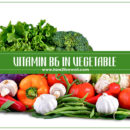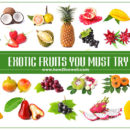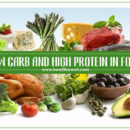Foods High in Folic Acid: What you need to know!
10. Arugula:
Like other dark, leafy green vegetables, arugula is a nutritional powerhouse. It’s packed with calcium, Vitamin A, potassium, iron, and zinc. Add a cup of arugula to your salad and you’ll also benefit from 19 micrograms of folic acid. Make it an even more powerful salad by adding other fruits and veggies that are high in folic acid, such as broccoli and avocados. Serving Size (1 cup), 19 micrograms of folic acid (2% DV), 6 calories.
11. Peanuts:
Peanuts are often associated with baseball games, but you might be surprised to learn that they’re rich in folic acid and other nutrients. A half cup of peanuts is filled with just under 106 micrograms of folic acid, or just over a quarter of the average person’s needs for the day. Peanuts are also a great source of zinc, protein, magnesium, and copper. Serving Size (1/2 cup), 105.9 micrograms of folic acid (26.5% DV), 427 calories.
12. Black-Eyed Peas:
Enjoy half a cup of black-eyed peas by cooking them with rice, pork, shallots, spinach, or some simple spices. However you decide to cook them, you’re certain to enjoy the many health benefits they provide. One half-cup serving contains over 104 micrograms of folic acid, enough to help you reach 26% of the recommended daily value. Serving Size (1/2 cup), 104.8 micrograms of folic acid (26% DV), 80 calories.
13. Bananas:
One medium-sized banana contains about 6% of the daily recommended value of folic acid. Grabbing a banana as a quick snack can be a great way to get that last little bit of folic acid into your diet for the day. It’s also a great fruit to enjoy on a regular basis anyway: bananas are high in potassium, protein, and fiber. Serving Size (1 medium banana), 23.6 micrograms of folic acid (6% DV), 105 calories.
14. Tomato Juice:
If you struggle to meet your daily folic acid requirements, a serving of tomato juice is a great way to reach that last stretch. A six-ounce serving of tomato juice provides 36 micrograms of folic acid, or 9% of the daily value. If the taste leaves something to be desired, try spicing things up with Tabasco sauce or a pinch of pepper. Serving Size (6 fluid ounces), 36.4 micrograms of folic acid (9% DV), 31 calories.
15. Chili Powder:
A pinch of chili powder adds a wonderful zing of flavor to many dishes. Plus, it’s a surprising source of Vitamin A, Vitamin C, potassium, calcium, and even folic acid. A teaspoon of this rich spice contains 2 micrograms of folic acid. Add a little bit of chili powder to your meals here and there, and you’ll be doing your body (and your taste buds) a real service. Serving Size (1 teaspoon), 2.1 micrograms of folic acid (1% DV), 6 calories.
16. Papaya:
Papaya is a colorful, tropical fruit that’s as rich in nutrients as it is in flavor. These fruits work well both in savory dishes and as dessert. Regardless of when and how you eat them, your body will enjoy a boost in nutrients, including folic acid. Papayas are also a great source of Vitamin A, Vitamin C, calcium, and potassium. Serving Size (1 small papaya), 57.8 micrograms of folic acid (14% DV), 59 calories.
17. Oranges:
There are many reasons besides Vitamin C to make sure you’re getting plenty of oranges in your diet. Oranges are a viable source of folic acid, with about 29 micrograms in a single small orange. Fresh-squeezed orange juice is always an option, but consuming the fruit itself provides the most health benefits. Serving Size (1 small orange), 28.8 micrograms of folic acid (7% DV), 45 calories.
18. Flaxseed:
It’s easy to add a tablespoon of flaxseed to your diet each day, and the health benefits you’ll enjoy as a result make it more well worth the effort. A single tablespoon provides 3% of the recommended amount of folic acid. Flaxseed is also a good source of fiber, Vitamin E, and cancer-preventing lignans. Many nutritionists recommended consuming between one and two tablespoons of flaxseed a day. Serving Size (1 tablespoon), 7.8 micrograms of folic acid (3% DV), 48 calories.
19. Beets:
Beets are a unique source of phytonutrients called betalains and known for their antioxidant, anti-inflammatory, and detoxification qualities. They also are rich in carotenoids which is very good for eye health. The powers of carotenoids in beets may be as much or more important to eye health than beta carotene. A serving of beets is high in folate, manganese, potassium. They are low in calories and like many vegetables, have been linked to reducing the risk of cancers.
Beets get their vibrant color from antioxidant betalains, purple pigments that are more than just pretty-looking. The betalain concentration in beets is higher than in most vegetables, and studies suggest betalains may help ward off cancer and other degenerative diseases. Beets are also packed with potassium, which helps vital organs run properly, and fiber, which keeps things in the digestive track flowing. Perhaps the gold-metal nutrient in beets is folate.
Folic acid plays an important role in the body’s ability to grow and regenerate healthy cells. Everyone should make sure they’re getting enough in their diet, but it’s especially important for pregnant women to meet their folic acid requirements each day. Fortunately, there are many foods that are packed with folic acid and other vital nutrients.













